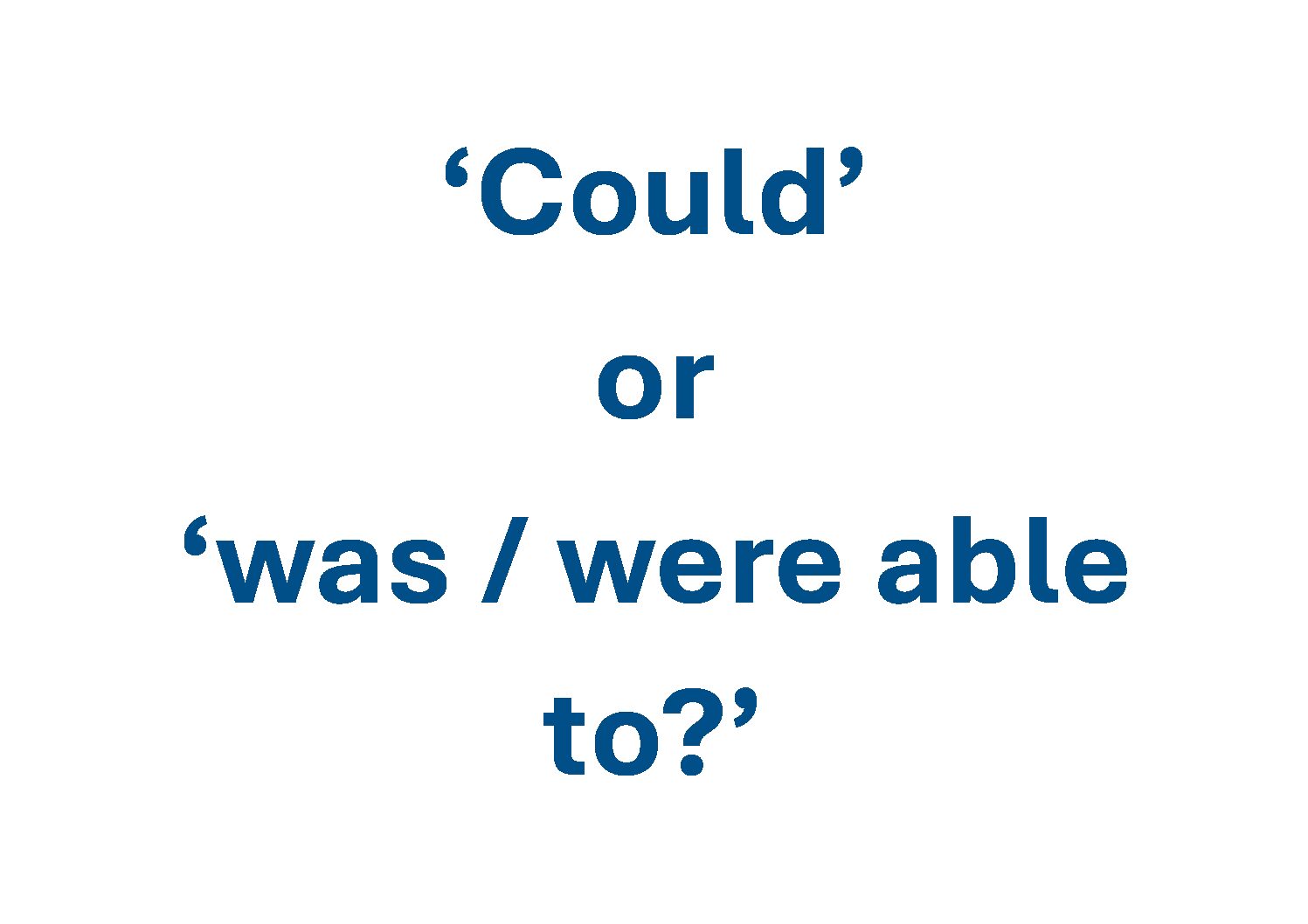
by Martin Burke | Nov 21, 2024 | Everyday grammar
Hello, English learners! Today, in the third of our blogs about potentially confusing tenses, we’re going to talk about the Present Perfect Simple and the Past Simple. These tenses can be tricky because they are used in different ways in British and American English....

by Martin Burke | Nov 21, 2024 | Everyday grammar
The Great Debate: Could/Couldn’t vs. Was/Wasn’t Able To English grammar can feel a bit tricky at times, especially when you’re deciding whether to use could/couldn’t or was/wasn’t able to to talk about the past. But don’t worry! Today, we’ll look at these phrases step...

by Martin Burke | Nov 15, 2024 | Everyday grammar, Uncategorized
Mastering English grammar involves understanding subtle differences between similar structures. Today, we focus on the negative forms of the Present Perfect Simple and Present Perfect Progressive tenses, highlighting their distinct uses. Present Perfect Simple:...

by Martin Burke | Nov 15, 2024 | Everyday grammar
Forming questions in English can be tricky, especially for those who are used to other languages where sentence structure remains static, even in interrogative forms. Understanding the rules of question formation is crucial to mastering fluent and natural-sounding...

by Martin Burke | Sep 23, 2024 | Everyday grammar
Language is a fascinating tool that enables humans to communicate complex ideas, emotions, and intentions. One word that plays a crucial role in the English language, particularly in terms of expressing hypothetical scenarios, politeness, and conditionality, is...

by Martin Burke | Mar 14, 2021 | Everyday grammar
Positioning the adverb ‘still’ in a sentence can be difficult for learners of English because it doesn’t follow the usual rules for other adverbs. Note, in particular, how with the exception of the Present and Past Simple tenses, and the Present Progressive tense, it...








Recent Comments